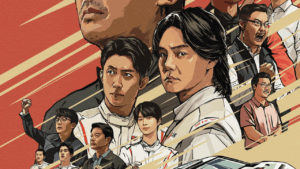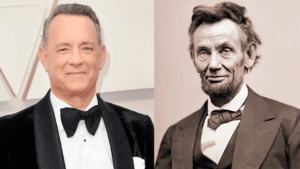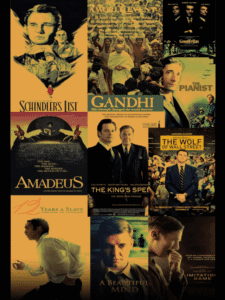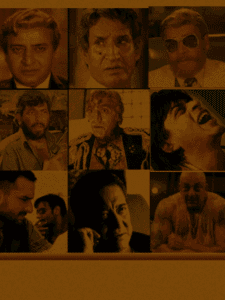The Unseen Wall Behind the Camera,
In the heart of the film industry, where stories are born and dreams collide with deadlines, one quiet truth has remained unchanged for decades: if your script doesn’t have a star, it may never become a film. This is the unspoken rule whispered in production offices, funding meetings, and festival lounges. It’s the kind of rule that kills a great script before it even finds its first frame. And it’s the reason so many important films are either still waiting to be made—or never will be, one of many repercussions of Bollywood start system.
How We Fell in Love With Stardom
The Indian film industry, like many others around the world, has built its foundation on the cult of the star. From the early days of Raj Kapoor and Nargis to the modern domination of the Khans, Kapoors, and Kumars, the industry has learned to move with the gravitational pull of celebrity. It makes sense from a business point of view. Stars offer safety. They guarantee an opening weekend. Their names bring in advertisers, OTT platforms, and even international sales. But the problem begins when this business logic becomes the only logic. When producers, studio heads, and even film festivals start to judge a project not by the depth of its story or the strength of its voice, but by the number of zeroes in the social media following of its lead actor—that’s when cinema starts losing its soul.
When Stories Start to Serve Celebrity
A film, at its core, is a story. And stories don’t need stars—they need honesty. They need characters who breathe, emotions that aren’t rehearsed a hundred times in vanity vans, and silences that speak more than words. But when everything becomes about attaching a star, the process of storytelling gets reversed. Instead of writing a story and finding the best person to play the role, writers are told to shape characters around specific actors. If a powerful role doesn’t suit the age or image of a popular actor, it’s rewritten. If a story has a female lead but there isn’t a marketable female star willing to do it, the script is quietly dropped. Creativity starts to serve celebrity, not the other way around.
Talent That Never Gets a Chance
The consequences of this are visible everywhere. Brilliant scripts get stuck in limbo for years because there’s no “face” to carry them. New actors—often more talented, more suited to the role—are passed over for more famous but less capable ones. First-time directors are constantly told to wait until a big name agrees to “come on board.” And ironically, even those stars—once loved for their talent—now often appear in safe, repetitive roles, afraid to take risks that might damage their box office image. This system doesn’t just block new stories. It damages the very stars it claims to protect by trapping them in predictable roles and curated personas.
Bollywood Star System: A Shift in the Audience’s Heart
But thankfully, the cracks in this system are beginning to show. In the last decade, Indian audiences have started to evolve. With the rise of OTT platforms and independent cinema spaces, viewers are no longer only chasing glamour—they’re searching for truth. Films like Court, Masaan, The Lunchbox, Soni, and Sir found their way into hearts without needing a superstar to push them. Shows like Paatal Lok, Delhi Crime, and Rocket Boys became hits not because they had household names, but because they had something more valuable—great writing, powerful direction, and actors who disappeared into their roles.
There’s something deeply refreshing about watching a film where you don’t recognize the faces. It allows the story to speak louder than the celebrity. It reminds us why we fell in love with cinema in the first place—not for the fame of the actor, but for the emotion of the moment. The tears in a child’s eyes, the tension in a mother’s voice, the quiet smile of a man who has lost everything—these don’t need a fan following. They need depth, courage, and commitment to character. And often, these qualities are found in actors who haven’t yet walked the red carpet.
A Bollywood Star System That Punishes the Brave
It’s also important to understand how this obsession with stars limits not just films, but entire careers. There are countless screenwriters, directors, editors, and composers whose work never gets seen because they aren’t attached to a name big enough to “greenlight” a project. Young casting directors trying to bring in fresh faces are told to go back to the same five names. Visionary directors are asked to make compromises in the name of market value. And audiences, in turn, are repeatedly served the same faces in slightly different versions of the same story.
What’s most tragic is that we’re not even giving these new voices a chance to fail. Everyone should have the right to fail. Big stars get that privilege—if their film doesn’t work, it’s just a misstep. But when a first-time filmmaker takes a risk without a star and it doesn’t click, they may never get a second shot. This imbalance is not just unfair—it’s creatively dangerous.
What the Future Could Look Like
Yet, something is shifting. A younger generation of audiences is growing tired of star-led, soulless blockbusters. They’re starting to ask for more. They’re discovering smaller films on streaming platforms. They’re watching Iranian cinema, Korean thrillers, and quiet Japanese dramas. They’re learning to appreciate story over spectacle, performance over popularity. And slowly, very slowly, the industry is noticing.
If Indian cinema wants to truly evolve, it has to stop worshipping stars and start respecting stories. It needs to create space for uncertainty, for unknown actors, for new names behind the camera. It needs to believe that what matters most is not who is telling the story, but what the story is trying to say. It’s time we moved away from the system that treats cinema as a red-carpet event, and return to the idea of cinema as a mirror, a question, a feeling.
Let the Light Come From the Story
In the end, stars will fade. They always do. But a good story stays. It lives in people’s memories, in the conversations it sparks, in the change it brings. And maybe, just maybe, that’s the kind of light we need more of in our films—not the blinding glow of celebrity, but the quiet brilliance of truth.

























